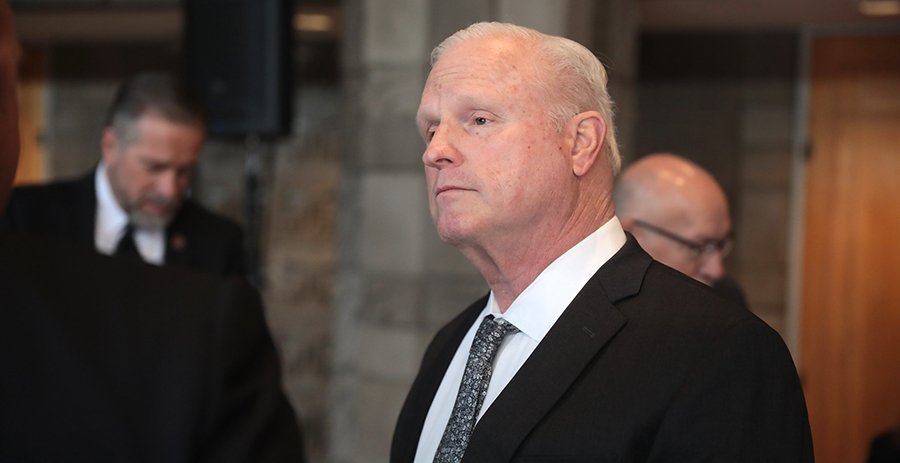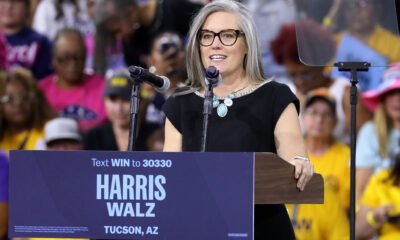Business
Supreme Court Justice Steps Down, Paving the Way for Hobbs’ Replacement Choice

Democratic Governor Katie Hobbs is poised to appoint three new justices to the Arizona Supreme Court following the retirement announcement of Justice Robert Brutinel. Brutinel, who joined the court in 2010 under Governor Jan Brewer, will step down at the end of October, initiating the process to fill his position.
As Brutinel prepares to exit, Justices Clint Bolick and Kathryn King face their own challenges. Appointed by Hobbs’ predecessor, Doug Ducey, both justices must participate in a retention vote this November to keep their seats for the next six years.
Historically, no Supreme Court justice has been removed through this merit selection process. However, recent controversies surrounding court rulings, particularly a 4-2 decision regarding abortion laws, have sparked organized movements to oust Bolick and King.
Their ruling earlier this year upheld a 1864 law criminalizing abortion except to save a woman’s life, but this statute was later repealed by the Legislature. Currently, Arizona law permits abortions up to 15 weeks into a pregnancy.
Voters are now considering Proposition 139, which seeks to establish broader abortion rights. Regardless of the outcomes regarding Bolick or King, or the impending vacancy left by Brutinel, these legislative efforts remain unchanged.
The results of these elections will significantly influence the ideological balance within the seven-member court. Ann Scott Timmer, who opposed reinstating the historical abortion law, now serves as chief justice after taking over from Brutinel.
Hobbs’ selection process for new justices diverges from the federal model. Instead of a presidential nomination followed by Senate confirmation, applicants for the Arizona Supreme Court are vetted by a special panel. This panel presents a list of at least three nominees, which must include candidates from differing political parties, leaving the governor to make a definitive choice from this list.
Concerns over Hobbs potentially securing a three-justice Democratic majority have prompted counter-campaigns. Randy Kendrick, spouse of Diamondbacks owner Ken Kendrick, has spearheaded efforts to retain Bolick and King, warning that liberal groups have already gained influence in statewide offices.
Progress Arizona launched its initiative to oppose both justices, while the National Democratic Redistricting Commission and Planned Parenthood Votes have announced a substantial investment to influence Supreme Court races, citing the increased urgency for safeguarding abortion rights post-Roe v. Wade.
Additionally, a new political action committee named Protect Abortion Rights No Retention Bolick and King has emerged, targeting the judicial records and backgrounds of the two justices. Compounding these dynamics, a proposal known as Proposition 137 could eliminate retention elections for most judges, retroactively nullifying pending votes to remove any sitting judge.


















